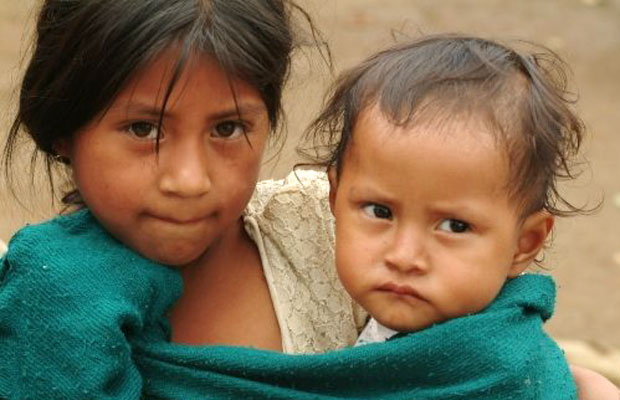
Hope for Central American Child Migrant Crisis
During the past year, tens of thousands of Central American children have fled horrific violence and poverty in search of safety and a better life in the United States. And as usual, whenever the well-being or safety of children are in jeopardy, the Salesian family raises its collective voice in support of humane response. As they have for decades, Salesian missionaries and volunteers continue to work tirelessly on these children’s behalf to improve conditions, and opportunities, back home.
“While this recent surge has drawn the nation’s attention to the daily horrors these children face — rampant gang-related violence, brutal murders and devastating poverty, to name a few — the reality is that these conditions have existed in Central America for a very long time,” says Father Mark Hyde, director of Salesian Missions. “And any resolution to this complex situation demands a multi-dimensional response — one that upholds our moral obligation to the children who have already arrived, and one that works to effect systemic, sustainable change on behalf of those who remain at home.”
On border towns between Mexico and the United States — in Tijuana, Mexicali, Nogales, Ciudad Juárez, Ciudad Acuña and Nuevo Laredo (among others) — Salesian missionaries are responding to unaccompanied minors in an organized, uniform way. First, they offer a safe place to live, providing shelter, food and a sense of family. Next, they open more hopeful pathways by providing recreational and social time as a way to develop additional interests, skills and interpersonal bonds; education and skills training to prepare youth for long-term employment and as a means to avoid crime; and moral, spiritual support based on St. John Bosco's teachings to encourage personal growth for those who choose.
“We reach out to them to provide a home, a school, a parish and a place where the young can meet and share as friends,” says Cardinal Oscar Andres Rodriguez, S.D.B., Archbishop of Tegucigalpa, Honduras. “Our goal is to address their essential needs.”
At the same time — as they have for decades — Salesian missionaries have been working throughout Central America on behalf of impoverished youth. Much of this work focuses on improving economic opportunity through education and guidance that prepares youth to become positive contributors to society
In El Salvador, for example, the Don Bosco Worker Technical Institute — which is located in one of the most dangerous neighborhoods of San Salvador — offers free education and job training to marginalized youth at risk of joining gangs. Here, more than 400 students pursue training in electricity, mechanics, carpentry, welding and tailoring.
“We cannot change the culture of violence and drugs — the same culture that so many youth migrants are fleeing — with an iron fist,” says Father Jose Moratalla, S.D.B., director of the institute. “Instead, we must use education to produce a new generation of entrepreneurs who can respond positively to the challenges and needs of their country.”
Likewise, in Guatemala, Salesian missionaries are leading a broad and intensive educational effort that is training hundreds of teachers and giving many children the chance to break the chains of poverty. In rural mountain villages throughout the country, 835 local students are enrolled in a three-year teacher-training course. Upon receiving their certification, these new teachers will serve as many as 600 villages.
“Since this program was initiated, the number of schools in the Alta Verapaz region has doubled,” says Father Tony DeGroot, S.D.B., who founded the initiative. “Now, children who were previously destined to be trapped by a lifetime of illiteracy can see the path to a productive future.”
And in Honduras, Salesian missionaries have been working for more than 100 years — operating schools, youth centers and medical clinics to help support and educate impoverished youth and their families. In a country where one in four residents struggles with chronic malnutrition, food assistance plays a critical role in as many Salesian-run programs as possible.
“Access to nutritious meals allows youth to be better prepared to take part in school activities and focus on their education,” says Jessica O’Connor, property and logistics officer at the Salesian Missions Office for International Programs. “Prepared students are more likely to learn valuable skills that will help them gain employment, break the cycle of poverty in their lives and enable them to give back to their communities.”
In these ways — throughout the current border crisis and beyond — Salesian missionaries remain committed to working on behalf of child migrants, and all youth, who desperately need new hope for a brighter future. The caring kindness of our many friends makes this work possible.
Our mission brings hope and dignity to as many impoverished children as possible around the globe. What’s your mission?

